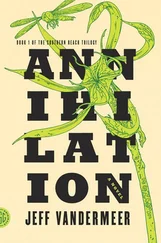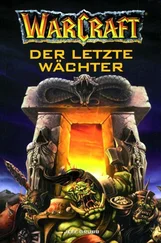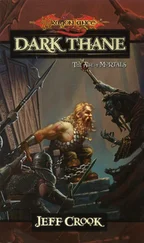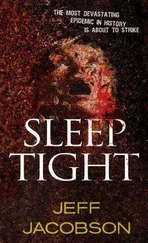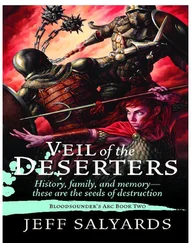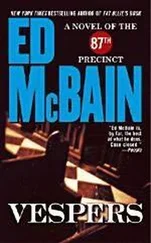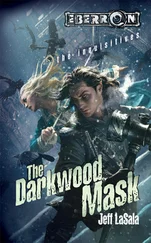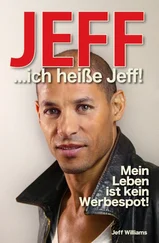Jeff Rovin - Vespers
Здесь есть возможность читать онлайн «Jeff Rovin - Vespers» весь текст электронной книги совершенно бесплатно (целиком полную версию без сокращений). В некоторых случаях можно слушать аудио, скачать через торрент в формате fb2 и присутствует краткое содержание. Жанр: Триллер, на английском языке. Описание произведения, (предисловие) а так же отзывы посетителей доступны на портале библиотеки ЛибКат.
- Название:Vespers
- Автор:
- Жанр:
- Год:неизвестен
- ISBN:нет данных
- Рейтинг книги:5 / 5. Голосов: 1
-
Избранное:Добавить в избранное
- Отзывы:
-
Ваша оценка:
- 100
- 1
- 2
- 3
- 4
- 5
Vespers: краткое содержание, описание и аннотация
Предлагаем к чтению аннотацию, описание, краткое содержание или предисловие (зависит от того, что написал сам автор книги «Vespers»). Если вы не нашли необходимую информацию о книге — напишите в комментариях, мы постараемся отыскать её.
Vicious bat attacks moving southward along the Hudson River prompt Nancy Joyce, a bat scientist who works for the Bronx Zoo, to investigate. When the attacks move into the New York subway system, Manhattan police detective Robert Gentry becomes involved. Joyce and Gentry team up to determine what is causing this unusual behavior. What they discover will keep listeners pinned to their seats and clawing for more.
Vespers — читать онлайн бесплатно полную книгу (весь текст) целиком
Ниже представлен текст книги, разбитый по страницам. Система сохранения места последней прочитанной страницы, позволяет с удобством читать онлайн бесплатно книгу «Vespers», без необходимости каждый раз заново искать на чём Вы остановились. Поставьте закладку, и сможете в любой момент перейти на страницу, на которой закончили чтение.
Интервал:
Закладка:

Jeff Rovin
Vespers
Acknowledgments
Dozens of people contributed information to this novel. However, there were several whose assistance was indispensable:
The bat scholar who wished to remain anonymous but provided patient explanations of echolocation, bat reproduction, and bat flight.
Betsy Herzog, spokesperson for the New York Police Department. If she didn’t know something-which was rare-she knew who did or knew what manual to find it in. She was, in a word, terrific.
Jerome Hauer, director of the Office of Emergency Management in New York. Even when buildings were collapsing and avenues were disgorging water and flame, he found time to answer questions about crisis management.
Larry Steeler, deputy superintendent of the Statue of Liberty. While he was forced to keep some of the Lady’s secrets to himself, he revealed-he insists-some of the best ones.
And Frank Pascual, director of public affairs for the MTA. He loves those tunnels and bridges, and his enthusiasm is contagious.
One
The bat sliced through the warm night air. Wood met hardball with a sweet, loud crack that sent it arcing through the twilight.
Thirteen-year-old Tommy Fitzpatrick dropped the bat and ran. The gangly boy couldn’t watch. He lowered his head, exploded toward first base, and prayed. He saw his white Nikes flash against the baseline. He felt the cotton uniform rub his thighs and forearms. Through his batting helmet he heard muffled cheers from the Thurston Thrashers grandstand. There was a runner at second. If the hit was a double, it could tie the semifinal game. A home run and they’d win. An out-
As he neared the bag he heard the drowning-out cheer from the Fortelni Fighters grandstand. He looked up just as big first baseman Rick Boots raised his arms in triumph and ran toward home with the rest of the infield. Boots didn’t even look at him.
Tommy slowed and stopped at the bag. He stood there breathing hard, his shoulders rounded, his back to home. He looked out at the picnic area and the street beyond. His dad was probably dying behind the cage.
So much for staying alive. So much for playing in the championship, for taking home a trophy, for being the talk of the lunchroom tomorrow.
One of the Fortelni coaches patted Tommy on the shoulder as he ran past.
“That was a good shot, son.”
“Thanks,” Tommy muttered. But the man probably didn’t hear. Tommy barely heard it himself. His mouth didn’t want to move. It just wanted to hang there.
Tommy pulled off his batting helmet and shook out his long, black hair. He wanted to cry but didn’t. It would be bad enough facing the school tomorrow as a loser. He didn’t want to face it as a water baby.
The boy took a short, deep breath. Somewhere inside he found the energy to crank up his arms, turn toward home, and join the rest of the Thrashers as they congratulated the winners.
The bat swept through the deepening twilight. Small, hairless wings carried it on a zigzag course through the woods. Crossing in the open field beyond, the vespertilionid quick-coughed an ultrasonic trilling from deep in its throat. The sound saturated the air for several yards, ten pulses a second alternating with the beats of its wings. The bat’s large ears were turned forward, listening for any change in the returning signal. Whenever the echoing pings came back as a low drumbeat, it meant another bat. When they returned as a long, high rasp, it meant that the fluttering wings of an insect were somewhere ahead. Finding a bug, the bat would pinpoint it more precisely by increasing its bleating twentyfold, processing up to two hundred beats per second. The amplitude, direction, and sharpness of the returning signal indicated exactly where the prey was as well as its size and texture. The bat would then change course, fix on the insect visually in a sharp, bright, black-and-white image, and snap it cleanly in its small jaws. During the moment it took to swallow, the vespertilionid rerouted the pulses through his nose. On an ordinary night the bat repeated this process an average of six hundred times an hour for five hours.
But tonight was not ordinary. The colony would begin to migrate at dawn, and the bat was a field picket, one of nearly three hundred rear-guard bats spread across the woods and flying up to two miles high. In addition to feeding, its job was to watch for any movement toward the forest. If it detected any, or if the echo of any bat within its range began to fade, it was to follow, reconnect, and defend the perimeter.
After gulping down two mosquitoes in swift, left-right bites, the bat detected something moving below. It was large and headed toward the woods. He nosed down, snaring a moth as he did. Speeding up to compensate for the loss of tailwind, the bat dove straight toward the object.
Tommy crossed the parking area adjacent to the woods. He stopped in front of his father’s forest green Blazer and thumped backside-first against the hood. He looked back at the diamond. Scott Fitzpatrick was talking with coach Don Breen and assistant coach Bob Kidd and several other fathers behind the cage. Some of the mothers were sitting and talking in the grandstand while little brothers and sisters ran around the picnic area near the pond. The rest of the Thrashers were sitting on the bench, eating chips and drinking soda and grumbling. The Fighters were in the field, exuberantly throwing the ball around.
The boy didn’t feel like talking to anyone.Why should he? He’d blown it. Even if no one said so, they’d be thinking it.
Tommy looked down at the glove on his left hand. At least he still had next year. And he had his glove. He loved the way it felt, the way it smelled, the heft when there was a hardball in the pocket. Win or lose, it always sucked putting this part of him up in the closet. But the Little League season was over and fall was starting to show in the trees. Soon it would be too cold to play catch. There was football, but it wasn’t the same as being out in the warm sunshine with school far off and-
The boy heard the fluttering. He raised his head an instant before it struck. The bat dug its ten strong claws deep into Tommy’s forehead. It held on, its wings beating against the boy’s temples while its wide mouth pushed through his hair. The pin-narrow teeth found the boy’s scalp and bit through the flesh.
Tommy screamed. He pushed at the bat with his right hand and screamed again when he felt the creature’s furry body. He screamed even louder when a piece of skin came away with the bat’s mouth. Panicking, Tommy hammered it with his glove.
“Dad!Dad! ”
The men looked over.
The bat held on as two more bats arrived from the left and right. The first bat snagged another piece of scalp just above the hairline while the other bats landed on the tops of Tommy’s ears. Their claws easily pierced his skin. The boy fell to his knees. He shook his head violently, but the feathery slap of their wings stayed with him.
Scott Fitzpatrick started running toward the parking area. “Tommy?”
Portly Coach Breen slowly jogged after him. “Scott, what is it?”
“I don’t know, Don. I can’t see.”
Behind them, members of the Thrasher bench stood. Several of the Fighters stopped playing and watched.
“Tommy!” Scott shouted as he craned to look around the cars.
A fourth bat charged across the field and latched onto Tommy’s upper lip. The boy wailed as it bit the underside of his nose. He tasted blood. A fifth bat snagged the flesh between the thumb and index finger of his right hand. The bat bit the back of Tommy’s wrist.
Читать дальшеИнтервал:
Закладка:
Похожие книги на «Vespers»
Представляем Вашему вниманию похожие книги на «Vespers» списком для выбора. Мы отобрали схожую по названию и смыслу литературу в надежде предоставить читателям больше вариантов отыскать новые, интересные, ещё непрочитанные произведения.
Обсуждение, отзывы о книге «Vespers» и просто собственные мнения читателей. Оставьте ваши комментарии, напишите, что Вы думаете о произведении, его смысле или главных героях. Укажите что конкретно понравилось, а что нет, и почему Вы так считаете.

